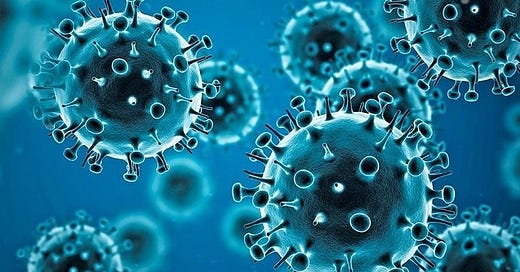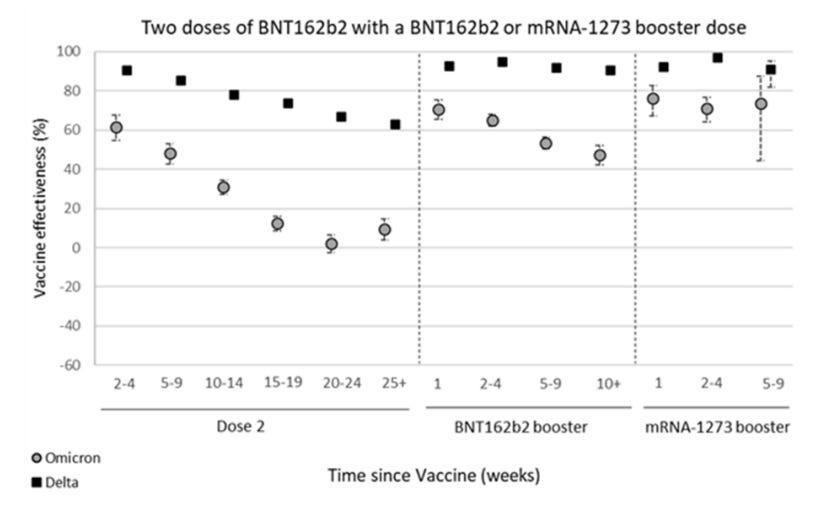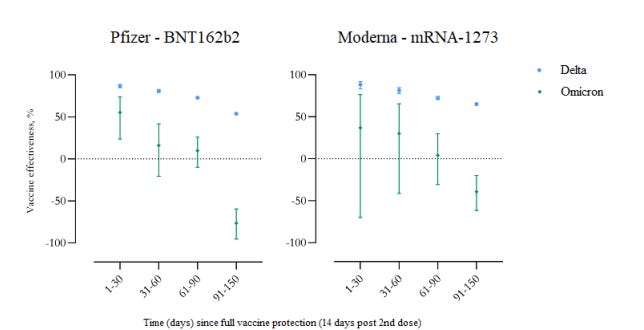With Omicron madness temporarily waning in the UK (even a virus needs a break at Christmas!), I wanted to take a look at whether Omicron is actually more mild than previous variants.
There are so few cases in the UK that any studies undertaken or conclusions made, so far, are purely conjecture. I decided to look instead at the data available from the country which has seen the highest rates and for the longest period of time, South Africa. In South Africa, probable Omicron cases jumped from 3% in October to 98% in December, so they have far more data to analyse.
The first study I looked at assessed the clinical severity of Omicron between 1 October and 30 November. You can read it for yourself here.
They concluded that there was a reduced risk of hospitalisation in individuals infected with Omicron, however, once hospitalised, risk of severe disease was similar. When they compared severe disease to the previous Delta wave, they found a reduced risk with Omicron but hypothesised that this was likely due to a result of high population immunity. It was estimated that after the Delta wave, 60-70% of the population had evidence of previous infection.
Next, I looked at a study which reported on breakthrough COVID-19 infections (BTIs) among health care workers in South Africa, link here. This combined three studies over 89 days for Beta, 180 for Delta and 30 for Omicron.
By 15 December, daily infections were three times higher than the Delta peak and included 17,650 BTIs versus 22,279 during Delta but in 1/6th of the time. There was a clear de-coupling with hospitalisations, probably due to Omicron significantly infecting a greater proportion of younger care workers. Out of all the BTIs there were 408 hospitalisations (2.3%), compared with 1429 with Delta (6.4%) but again in a much shorter time span. Overall, a 2.8 x reduction in hospitalisations. Once hospitalised there was not much difference in general ward hospitalisations (91% with Omicron vs 89% with Delta) and an increase in high care with 6.1% of Omicron hospitalisations requiring this level of care versus 4.2% with Delta. Intensive care rates were much lower at 2.7% vs 6.5%.
Overall, a positive picture, however previous infections and seasonality may have played a big part in reducing numbers, so we will have to see how it plays out in the rest of the world. Higher infection rates in younger people also helped keep hospitalisations lower, so again, we will have to see if the same age groups get infected elsewhere. Furthermore, these were all BTIs in vaccinated care workers so it is unclear if unvaccinated care workers had BTIs and if they did what hospitalisation and severe disease rates were like with them. Possibly, all South African care workers were vaccinated as they were the first priority group in their vaccination campaign.
So, the short answer to the question of whether Omicron is more mild is, it will send less people to hospital but if you are hospitalised, severe illness is likely to be similar. The speed of Omicron is also something to consider due to the amount of infections, compared with Delta, happening in a more condensed time period. Moreover, with only 27% of South Africa’s population fully vaccinated, it is unclear how a population with mainly vaccination immunity will fare. Especially when Omicron is able to evade that immunity. Also, South Africa’s wave occurred in a warmer season and we are heading into deepest, darkest winter.
A study by Cambridge University looked at why Omicron may be more mild and discovered that it was less efficient than Delta at entering the lung cells. Furthermore, it was less likely to cause fusion and cell to cell spread. All good news for severe disease to be minimised. Another study in Hong Kong also found that Omicron grows 10 time slower in lung tissue and 70 times quicker in bronchial tissue, which again is good news for less severe disease.
All good news so far. However, the Cambridge study also found that Omicron required a ten fold increase in the concentration of serum antibody in order to neutralise it and most people with two doses of vaccine did not have that level of protection.
This was confirmed in the latest UKHSA surveillance report which showed very little protection after 20 weeks (see chart below). The booster improved the situation but by 10 weeks, this was waning quickly as well.
A Danish study (link here) further reinforced this lack of protection showing that after 91 days, individuals with two doses of vaccine actually went into negative efficacy (see chart below). This increased after the booster again but not as high as the UKHSA figures.
Overall, the signs that Omicron will cause less severe disease are encouraging. However, a lot of the data is based on South Africa’s younger, heavily naturally immune population versus the Western world’s older population with a vaccine induced immunity. The warmer season in South Africa compared with the cold winter here will also have made a difference.
Non-existent immunity for two dosed individuals and quickly waning immunity in the boosted will also have a big impact on how Omicron plays out here. Data from the UK and Canada, so far, show that Omicron is infecting vaccinated individuals at a much higher rate than unvaccinated ones. Is this due to unvaccinated individuals having a much broader natural immunity? Is ADE facilitating the virus somehow or does OAS mean the vaccinated are unable to produce the necessary immune response? If ADE and/or OAS are affecting the vaccinated is it best to get boosted or risk natural infection, hopefully with less severe disease? I will write about this soon because it is an important question, especially with the prospect of boosters every 4-6 months.







I got a sore throat the middle of October. When I get a cold, that is usually my first sign. I gargled with salt water and by the next day, the sore throat was gone but my head was stuffy and I had a runny nose. Took NyQuil and Afrin night and day and in the allotted 10 days that most colds last, It was gone!! Now, I wonder if it was a cold or was in Omicron?? I won't get jabbed or tested (unless I get a fever, which I haven't had since I was 4 and got the chickenpox, I will be 70 next month!
Isn’t that the normal history of every virus as it runs it’s course......until Fauci came along with PCR testing, paying for high deaths counts, and making profitable and deadly spike protein injections.